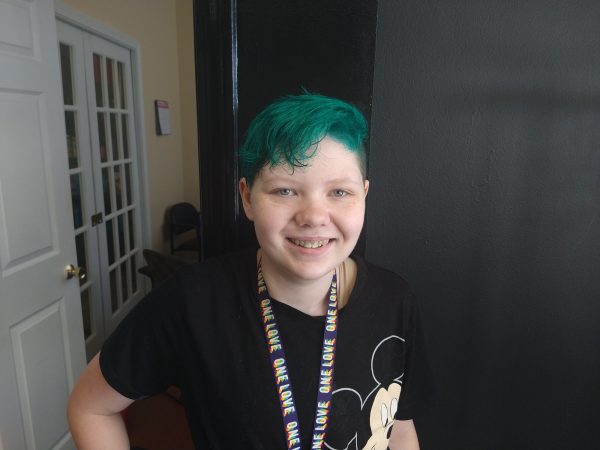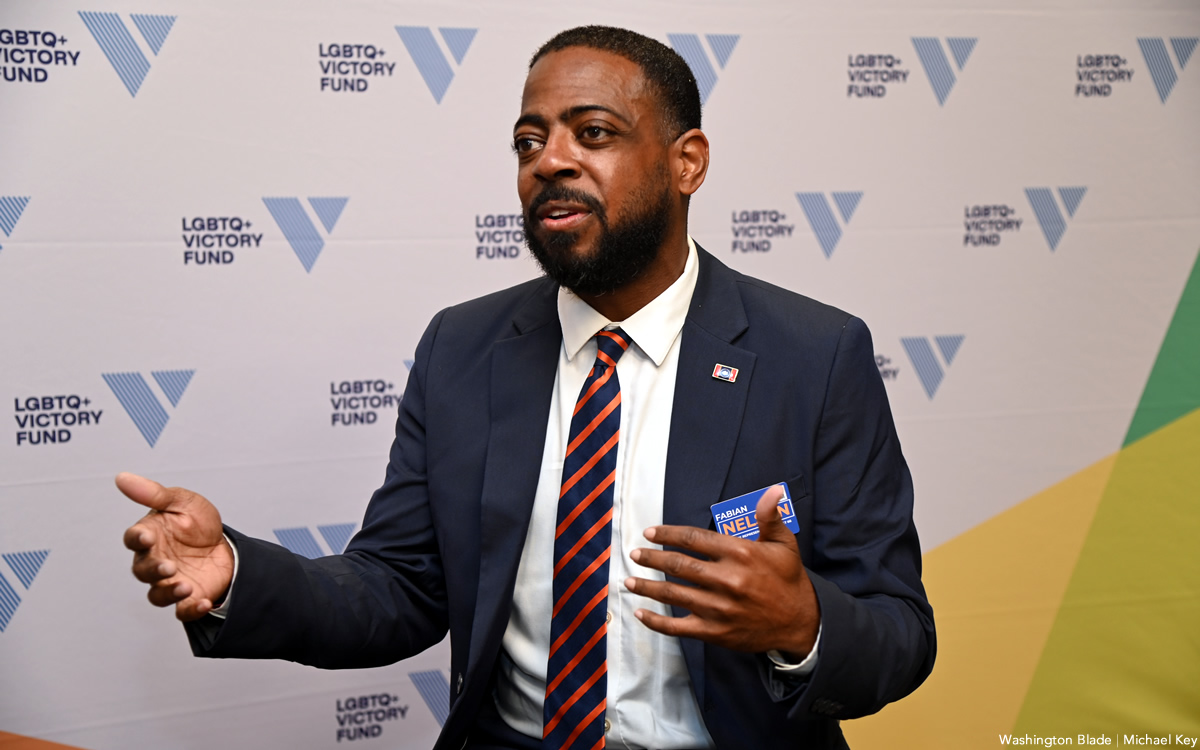Pioneering LGBTQ rights advocate Lilli Vincenz dies at 86
LGBTQ rights activist, psychotherapist, and documentary filmmaker Lilli Vincenz, who played an important role in helping to organize groundbreaking gay rights protests outside the White House and Philadelphia’s Independence Hall in the 1960s, died June 27 of natural causes at her residence in an assisted living center in Oakton, Va. She was 86.
Vincenz is believed to be the first known lesbian to participate in a gay rights protest in front of the White House in April 1965, when she joined pioneering gay rights leader Frank Kameny, seven other gay men, and a bisexual and straight woman in a first-of-its-kind White House protest calling for equal rights for homosexuals.
The protest took place about two years after Vincenz also is believed to have been the first lesbian to join the Mattachine Society of Washington in 1963, which was D.C.’s first significant gay rights organization co-founded by Kameny and gay activist Jack Nichols in 1961. The Mattachine Society of Washington led the 1965 White House protest and other 1960s era gay protests in D.C.
According to a biographical write-up on Vincenz by lesbian historian Lillian Faderman for the current Mattachine Society of Washington that was reconstituted years later by D.C. gay rights advocate Charles Francis and others, Vincenz participated in other protests in the 1960s in support of what was then known as the homophile movement.
Among them were protests outside the Pentagon and the U.S. Civil Service Commission in Washington, which oversaw enforcing the federal government’s policy at the time of firing gay men or lesbians found to be working at federal government agencies.
Vincenz joined Kameny and other D.C. Mattachine Society members in another historic first in a protest outside Philadelphia’s Independence Hall beginning in the mid-1960s in support of homosexual rights.
Faderman’s biographical write-up on Vincenz says that in 1968, Vincenz brought her 16-millimeter movie camera to the Independence Hall gay protest to film what became the fourth annual Remembrance Day gay picketing at Independence Hall.
It would become the start of Vincenz’s practice as an amateur filmmaker to film other early gay rights protests and other gay events, including the 1970 gay and lesbian rights march in New York City to commemorate the first anniversary of the 1969 Stonewall riots in New York’s Greenwich Village that’s credited with rapidly advancing the modern LGBTQ rights movement.
In 1966, according to Faderman, Vincenz was named editor of the D.C. Mattachine Society’s monthly newsletter called The Homosexual Citizen. In 1969, Vincenz and D.C. lesbian activist Nancy Tucker co-founded an independent gay newspaper as a spinoff of the Mattachine newsletter called the Gay Blade, which later evolved into the Washington Blade.
Vincenz was born in Hamburg, Germany in 1937 and lived through World War II and the fall of the Nazi regime before immigrating to the U.S. in 1949 with her mother and sister at the age of 12.
She earned her bachelor’s degree in French and German at Douglas College in New Jersey in 1959 and a master’s degree in English at Columbia University in New York City in 1960, according to a biography on her by the LGBTQ organization Equality Forum.
The biography says Vincenz enlisted in the U.S. Army’s Women Corps or WAC after completing her master’s degree. But she was discharged from the Army after serving nine months at the Walter Reed Army Medical Center in D.C. on grounds of homosexuality. According to the Equality Forum write-up, she was outed by her roommate, which led to a general discharge under honorable conditions.
While involved in gay rights endeavors in the 1970s, Vincenz received a second master’s degree in psychology from George Mason University in Virginia in 1976. In 1990, she received her Ph.D. in human development at the University of Maryland, according to a write-up on her background by the Library of Congress.
That write-up came about shortly after Vincenz donated her papers and the films she had made of LGBTQ rights events in 2013 to the Library of Congress. The donation included some 10,000 papers, photographs, 16-mm movies, and memorabilia collected over a period of more than 50 years.
The Library of Congress statement says the donation of Vincenz’s papers and memorabilia was made through her agent, Charles Francis, the co-founder of the Kameny Papers Project, which facilitated the donation of Kameny’s papers to the Library of Congress in 2006.
It was at the time of her discharge from the Army in 1963 that Vincenz became involved with the Mattachine Society of Washington, according to the Library of Congress statement. Her LGBTQ rights activities continued through the 1970s while she also began her private psychotherapy practice with a focus on mental health issues faced by lesbians and bisexual women.
In 1971, Vincenz supported Frank Kameny’s campaign for the D.C. congressional seat in his role as the first known openly gay person in the country to run for public office. Kameny lost the election but is credited, through help from Vincenz, with opening the way for other LGBTQ candidates to run for and win election to public office.
Through most of the 1970s Vincenz hosted the Gay Women’s Open House in D.C. as a means of providing a safe space for lesbians to socialize and discuss what was then referred to as gay activism. She continued her activism in the 1980s and 1990s and during the peak of the AIDS epidemic she provided support for gay men through her psychotherapy practice, according to fellow activists and friends. Among the organizations she became involved with was the Daughters of Bilitis, a national lesbian rights organization.
People who knew Vincenz have said she and her domestic partner since 1986, Nancy Davis, hosted many LGBTQ-related events in their Arlington, Va., home where the two founded an organization in 1992 called the Community for Creative Self-Development.
D.C.’s Rainbow History Project says in a write-up on the two women that they called the organization a “holistic learning community for empowering gay women and men and all gay-friendly people, creatively, spiritually, and psychologically.”
Davis died of natural causes in 2019 at the age of 82.
“Lilli honored us all by donating her thousands of pages of papers, photographs, and iconic historical documentaries, ‘The Second Largest Minority’ (1968) and ‘Gay and Proud’ (1970) to the Library of Congress,” Francis said. “Through her gift, Lilli’s films now belong to the American people as does her legacy.”
Vincenz’s friend Bob Brown said Vincenz is survived by a nephew and three nieces and many friends. He said plans for a memorial service for Vincenz would be announced sometime later.
The current day Mattachine Society of Washington produced a film on Vincenz’s life that focuses on her role as one of the first to film historic LGBTQ events, especially her film ‘Gay and Proud’ that captured the gay march in 1970 in New York to commemorate the first anniversary of the Stonewall riots.
Among those interviewed in the Mattachine film and who praised Vincenz’s work were U.S. Sen. Tammy Baldwin (D-Wisc.), lesbian historian Faderman, and gay historian Eric Cervini.
The film, which Mattachine official Charles Francis says captures the essence of Vincenz’s work and legacy, can be viewed on YouTube.


